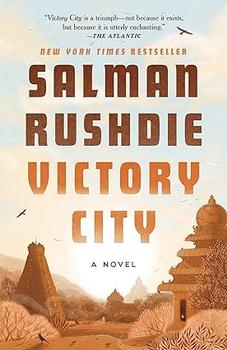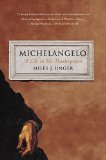Summary | Excerpt | Reviews | Beyond the book | Read-Alikes | Genres & Themes | Author Bio

A tall, yellow-haired, young European traveler calling himself “Mogor dell’Amore,” the Mughal of Love, arrives at the court of the Emperor Akbar, lord of the great Mughal empire, with a tale to tell that begins to obsess the imperial capital, a tale about a mysterious woman, a great beauty believed to possess powers of enchantment and sorcery, and her impossible journey to the far-off city of Florence.
The Enchantress of Florence is the story of a woman attempting to command her own destiny in a man’s world. It is the story of two cities, unknown to each other, at the height of their powers–the hedonistic Mughal capital, in which the brilliant Akbar the Great wrestles daily with questions of belief, desire, and the treachery of his sons, and the equally sensual city of Florence during the High Renaissance, where Niccolò Machiavelli takes a starring role as he learns, the hard way, about the true brutality of power.
Vivid, gripping, irreverent, bawdy, profoundly moving, and completely absorbing, The Enchantress of Florence is a dazzling book full of wonders by one of the world’s most important living writers.
Rushdie's larger points that literature (storytelling) should be the agent for understanding and that people are essentially the same is well heard and, after 500 pages, well-explained, but the novel contemplates little else. The plot circulates around itself, and though some scenes (sections in Italy and Akbar's palace come to mind) are lucid and engaging, the nonlinear sections are so frequent and so confusing that they undermine any brilliance the clearer narrative sections possess. One finds oneself anxiously looking forwards and backwards in the narrative for a point of reference; and the slog is difficult. There are clear, beautiful moments to be found; and some of the characters, The Enchantress for one, jump off the page. Yet, the plot and the connection between the characters is unclear. By the end, it seems that the novels objective is simply to confuse, providing neither the benefit of a satisfying conclusion or the key to the central riddle.
Overall, there are some brilliant moments and those fond of Rushdie's earlier works might be interested in wading into this one...continued
Full Review
 (461 words)
(461 words)
(Reviewed by Sarah Sacha Dollacker).
Salman Rushdie did a tremendous amount of research before writing The Enchantress of Florence, as evidenced by its six-page bibliography. Many of the characters are drawn from history, the most interesting and prominent being Akbar the Great.
As in the book, Akbar the Great was known to be a wise and benevolent ruler. He ruled theMughal Empire (map), founded by his grandfather, from 1556 to 1605, taking the throne at just 13 years of age. He was a fearless leader in war and, by the time he was 15, had succeeded in reuniting Hindustan (most of modern day northern India including parts of Pakistan). He was known for his kindness and religious tolerance. His marriage to Jodhabai was the first royal marriage between a Hindu and an Islamic ...

If you liked The Enchantress of Florence, try these:

by Salman Rushdie
Published 2024
The epic tale of a woman who breathes a fantastical empire into existence, only to be consumed by it over the centuries—from the transcendent imagination of Booker Prize–winning, internationally bestselling author Salman Rushdie.

by Miles J. Unger
Published 2015
The life of one of the most revolutionary artists in history, told through the story of six of his greatest masterpieces.